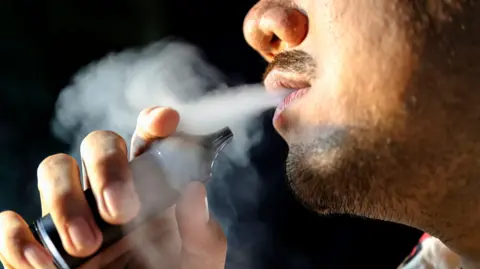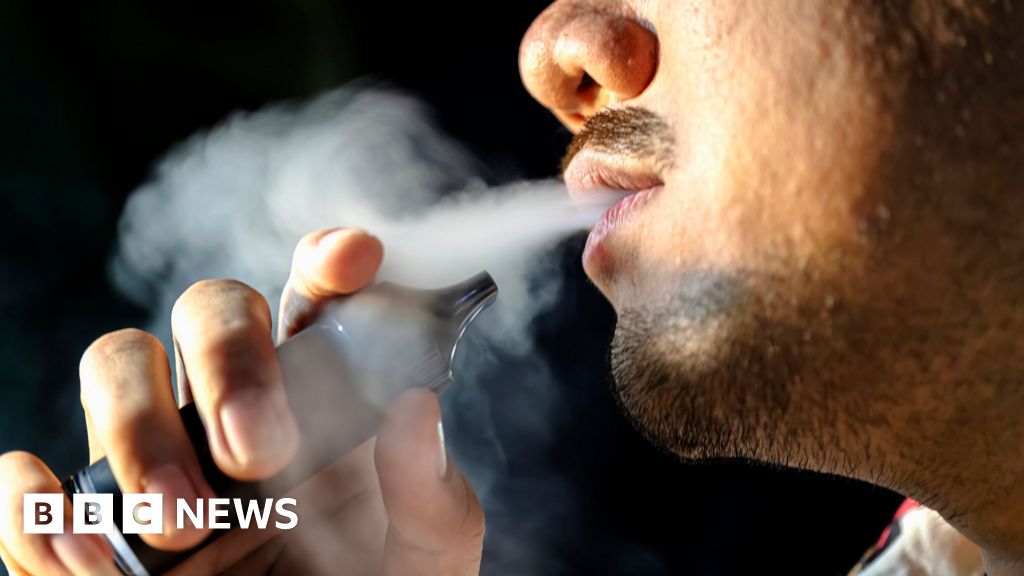Singaporean authorities have announced tougher penalties for vaping as they try to crack down on the increasing use of drug-laced vapes in the country.
These include stiffer fines, longer jail terms, and even caning. Foreigners may also be deported.
While Singapore was one of the first places in the world to ban vaping in 2018, the practice has persisted, and in recent months the city-state has seen a rise in popularity of vapes laced with etomidate, an anaesthetic drug.
This has caused widespread alarm in the country, which has some of the world's toughest drug laws.
In recent months, authorities have acknowledged the growing prevalence of etomidate-laced vapes, more popularly known as Kpods in Singapore, referring to their effects similar to those of ketamine.
A test of a random sample of 100 seized vapes in July found that a third contained etomidate.
Videos of teenagers and young adults acting erratically in public while vaping have gone viral on social media, sparking concern among Singaporeans who widely support the country's tough penalties on drug trafficking and use.
Health Minister Ong Ye Kung stated that the tougher laws were necessary as vapes have become a gateway for very serious substance abuse, where the devices have become delivery devices for drugs.
The government has sharpened its penalties for vaping while reclassifying etomidate as a Class C controlled drug for six months. The new rules will come into effect on September 1.
Those caught using or possessing vapes, including regular ones, will face increased fines starting from S$500 (£288; $390) and state-mandated rehabilitation. The penalties will be harsher for those caught with etomidate-laced vapes.
Suppliers of drug-laced vapes will face up to 20 years in jail and 15 strokes of the cane.
Foreigners in Singapore will not only face the same penalties but risk their residential and employment permits being revoked, and may be deported or banned from re-entering the country.
The rules also apply to tourists. The BBC understands that signs will be placed throughout Changi Airport reminding visitors of the vaping ban and providing disposal bins for their devices.
The rules are intended as interim measures while the government develops new laws to tackle etomidate and other potential drug delivery through vapes.
Measures include a public health campaign and enforcement programs, with advertisements urging cessation of vaping across public transportation and facilities, along with education programs in schools.
With many vapes coming from neighboring countries such as Malaysia and Indonesia, checks at land borders and airports have increased.
Singapore's crackdown follows trends in other countries introducing stricter vaping regulations to limit usage among youth, including the UK and Australia, which have banned various forms of vape sales.


















